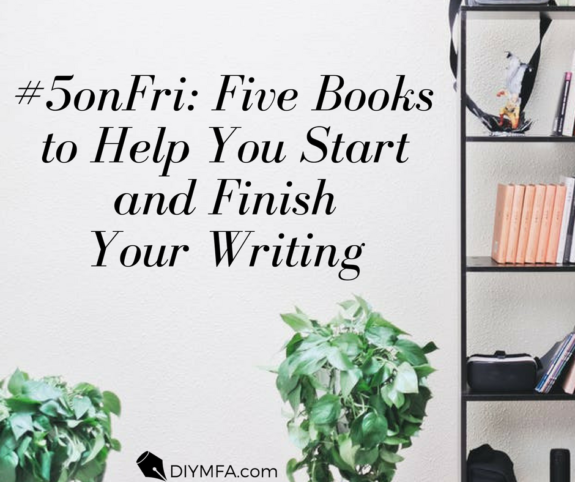What’s the hardest part of the writing process? Writers are divided on whether it’s starting or finishing. It’s a challenge to face a blank page or screen and get those first words down. Once you’ve found momentum on a writing project, you might run into writer’s block while wading through a tricky, unstructured middle. Finally, it may prove difficult to sustain the energy and structure to get to the end, or even to know when you’ve finished.
Fortunately, you’re not alone in facing the challenges of starting and ending your writing. Many writers have slogged through the same terrain, emerged successfully, and created resources to help you out. The following five books offer a wide variety of strategies to help you start your writing, finish it, or both. From inspirational titles that will loosen up your inner critic and get ideas flowing, to pragmatic reads that will help you on the road to completion, you’re sure to find something here that will work wonders on your own creative trouble spots.
Writing Down the Bones: Freeing the Writer Within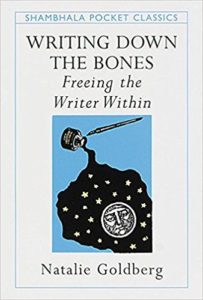
By Natalie Goldberg
If you’re anxious about putting pen to paper, this book is like a warm cup of a tea to calm your nervous system and allow inspiration to emerge. Goldberg draws on her practice of Zen meditation to offer guidance and encouragement to anyone who wants to write. She sees writing as available to everyone, since all of us have valuable stories to share and can learn the tools to articulate them. Many of these tools are introduced in the book, from timed writing to descriptive exercises, teaching readers how to lay the foundation for a vital and ongoing writing practice.
Bird by Bird: Some Instructions on Writing and Life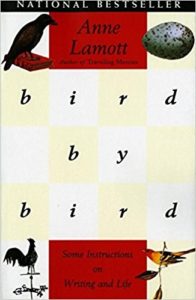
By Anne LaMott
Lamott is a friendly teacher whose wit contains wisdom. Her book on writing, with its modest claims (it purports only to give “some” instructions), is accessible and funny. Through personal stories, she shares practical guidance for writers, from working on one small piece at a time (the titular “bird by bird”) to navigating jealousy to letting your characters live and guide you. Her descriptions of “shitty first drafts” will surely resonate, and get you excited to begin your own!
The Writer’s Journey: Mythic Structure for Writers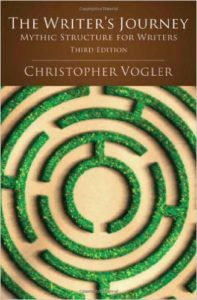
By Christopher Vogler
And now for something completely different. Vogler was the first to apply Joseph Campbell’s “hero’s journey” model to screenwriting, and his book describes how mythic structures can be applied to modern storytelling. The Writer’s Journey offers a thorough look at character roles and stages of the hero’s journey, and gives examples from popular movies to show how they make use of a heroic narrative model. If you’re looking to structure a story from the beginning, if you think something in your plot isn’t working but aren’t sure what the problem is, or if you’re seeking to craft a satisfying, coherent ending to a project you’ve been working on, you’ll find this book to be an insightful guide to the mechanisms of story.
How to Write a Novel Using the Snowflake Method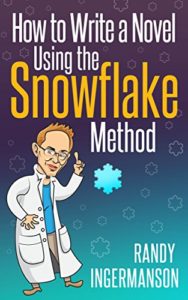
By Randy Ingermanson
Another structure-oriented book, this one has a framing narrative that humorously puts its writing advice into practice. A woman named Goldilocks wants to write a novel and learns different methods from different bear teachers, until she finds one that’s “just right”… and a murder mystery ensues. Ingermanson is the first to admit that his Snowflake Method isn’t for everyone, but because it’s quite detailed, it offers a number of tools to get novelists started out. You’ll learn how to make character sheets, develop a one-sentence premise, and build increasingly complex layers of structure from there. Like The Writer’s Journey, this book is a great one for diagnosing plot problems, and it’s useful for writers who prefer to know the jist of what they’re writing in advance.
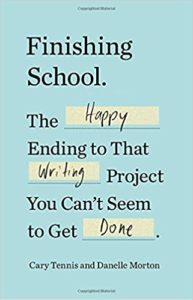 Finishing School: The Happy Ending to That Writing Project You Can’t Seem to Get Done
Finishing School: The Happy Ending to That Writing Project You Can’t Seem to Get Done
By Cary Tennis and Danelle Morton
After years of struggling to complete a novel, advice columnist Cary Tennis brought together a community of writers in the same boat to try out a new method of getting projects done. Morton was one of his guinea pigs. The “finishing school” method they practiced involved egalitarianism and accountability: participants blocked out times to work on their writing, then buddied up and checked in with each other. Reading along with Tennis and Morton’s book, it’s easy to put this method into practice yourself. The authors also offer advice and perspective on overcoming common writing blocks: even Steinbeck struggled with them!
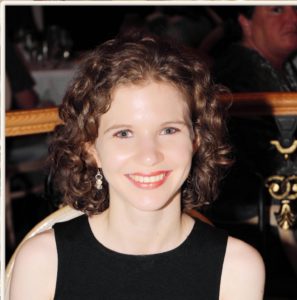 Melanie Bell is the author of The Modern Enneagram. Her fiction, poetry, and essays have appeared in various publications including The Fiddlehead, Cicada, Grain, CV2, xoJane, and Autostraddle. She offers writing coaching and editing services through Inspire Envisioning, and you can connect with her work on Facebook, Twitter, and Instagram.
Melanie Bell is the author of The Modern Enneagram. Her fiction, poetry, and essays have appeared in various publications including The Fiddlehead, Cicada, Grain, CV2, xoJane, and Autostraddle. She offers writing coaching and editing services through Inspire Envisioning, and you can connect with her work on Facebook, Twitter, and Instagram.



